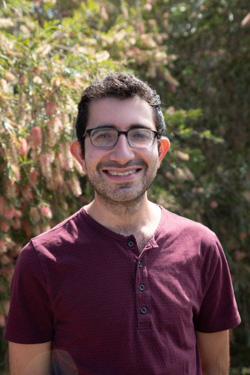Campus News
Study of a large public university in the Northeastern U.S. finds that students who feel more university connection may be more likely to binge drink
Universities should ensure they are providing ample opportunities for students to feel connected through sober activities and environments, researchers recommend.


Students who feel a sense of belonging at their university may be more likely to binge drink than those who do not feel the same connection, according to new research. The findings come from a study published in the Journal of Studies on Alcohol and Drugs, which examined the ways that both positive and negative aspects of mental health can contribute to the risk of binge drinking, cannabis use, and nicotine use.
UC Santa Cruz Assistant Professor of Psychology Danny Rahal was the lead author of the paper, alongside coauthors Professor Stephanie Lanza, of Penn State, and Assistant Professor Kristin Perry, of University of Oregon. The team conducted the research while Rahal and Perry were completing postdoctoral appointments with Lanza at Penn State in the wake of the coronavirus pandemic.
“In 2021, students at many universities were returning to campus after the COVID-19 shutdown, and some students were attending in-person college classes for the first time,” Rahal explained. “Data from that time indicated that many students felt disconnected from their school. Universities wanted to foster a sense of connectedness among their students for many good reasons, but we wanted to know if there was something positive—specifically a sense of belonging—that is related to substance use. Our study showed that feeling connected to one’s university is associated with higher rates of substance use.”
The researchers examined data collected during the 2022-23 school year from 4,018 students at a large public university in the Northeastern United States. Participants answered questions about substance use, their sense of belonging at their school, and their mental health—specifically about anxiety, depressive symptoms, perceived stress, flourishing in life, and confidence in their academic success.
A statistical modeling technique called latent profile analysis allowed the researchers to simultaneously account for all these measures by combining them to identify five profiles of student mental health. In this study, a student was considered to have good mental health if they had lower levels of stress, depressive symptoms, and anxiety as well as higher flourishing and academic confidence than their peers.
The study found that students with average or good mental health were more likely to have engaged in binge drinking in the past month if they felt connected to their university than if they did not feel that connection. Researchers said this does not mean that connectedness is bad for students to experience; rather, the results are nuanced.
“We want to cultivate connectedness among students,” said Perry. “Connectedness gets them involved. It can be a really powerful protective factor against negative mental health outcomes and can help keep students in school. But connectedness at school can go hand in hand with binge drinking if there is a culture of drinking at the school.”
Though the researchers said they expected these results about drinking, they were surprised to learn that students with poor mental health who felt connected to their university were more likely to use non-vaped tobacco products than students with poor mental health who did not feel connected to their university. The results around cannabis were less conclusive, but the researchers said the trend was clear.
“Generally, students who felt connected to their university were more likely to use substances than disconnected students with the same level of mental health,” Rahal said.
While a sense of belonging was related to substance use, it could also be part of the solution, according to the researchers.
Though drinking is common on university campuses, many students believe that it is far more common than it is, the researchers explained. In this dataset, slightly fewer than one-third of students reported binge drinking in the last month. Despite the fact that two-thirds of students had not engaged in binge drinking, the researchers also found that students believed a typical student consumed three to five drinks multiple times each week. The researchers said this disconnect between perception and reality points to an opportunity to change the culture: creating ample opportunities for all students to socially engage and participate in alcohol-free environments, so that alcohol feels less central to student life.
“Cultivating belonging for all students is an important way that universities can embrace diversity and help all students thrive,” Lanza said.
This story was adapted from a press release by Penn State.
Resources at UC Santa Cruz
At UC Santa Cruz, The COVE is a recovery and harm reduction community that welcomes students and guests to learn about recovery from alcohol and/or other drug addictive disorders and participate in fun and supportive activities with other sober students. To learn more about the COVE—including upcoming gatherings and sober social events—visit their website, or follow them on Instagram.
UCSC students can also explore the campus’s more than 200 registered student organizations and campus resource centers, which provide many substance-free activities and opportunities to build community. To learn more about the variety of ways to connect with the campus community, visit our Campus Life webpage. Additionally, UCSC’s Student Health Outreach & Promotion office offers resources and education to promote student health and safety related to alcohol, tobacco, and other drugs.